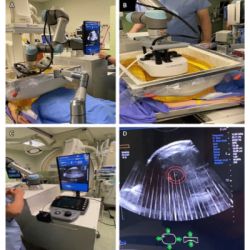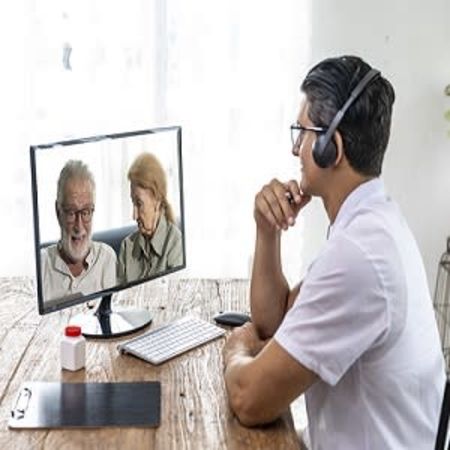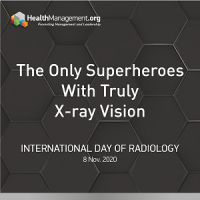Healthcare systems have faced significant challenges since the beginning of coronavirus disease in December 2019. During the first wave of the virus, as case volume began to increase dramatically, hospitals imposed a restrictive visitation policy to ensure the safety of both staff and patients. Families were no longer allowed at the bedside, and because of such a huge burden of cases, frontline healthcare workers were also unable to be in regular contact with families. At the same time, elective procedures were delayed, and the radiology department's daily imaging volumes decreased.
In one hospital in New York (name not available), the radiologists in the radiology department built the Family Connect (FC) programme. As part of this programme, radiologists decided to volunteer as communication liaisons connecting inpatient teams with patient families. They participated in virtual rounds and contacted patient families every day to update them on their loved one's current status and progress. This form of support helped hospitalists and intensivists, who were extremely busy handling the COVID-19 patient flow. Also, by connecting with families, these volunteer radiologists provided much-needed relief to family members who were already stressed by the sickness of a loved one, which was even more enhanced because of separation.
233 attending radiologists participated in the Family Connect programme. Before implementation, these radiologists were provided training on the basics of COVID-19 diagnosis/treatment, review/documentation and family communication. Radiologists were paired with medical students who were restricted from direct patient care and workplace learning. The pairs covered around 6 to 10 patients. Their responsibilities comprised of performing thorough chart review, virtual interdisciplinary team rounds, calling and updating the patient's health care proxy, documenting the discussion in the patient's electronic medical record, and providing support for the 24/7 patient call centre.
A survey was conducted with 69 radiology volunteers who were asked to rate their experiences on a Likert scale where they were asked to strongly agree, agree, disagree, strongly disagree or not applicable. Respondents were asked to provide background information about their subspecialty field of radiology, prior work experience etc. They were also asked questions about their personal gains and impact on their knowledge of the healthcare system and COVID-19 and the influence of this experience on their future radiology practice. Lastly, the respondents were asked about their experience with the medical students.
Findings from the survey showed that breast imaging had a higher percentage of contributors (33%). Overall, the participating radiologists had an average of 14.3 years of clinical practice experience. All of the survey participants conveyed that the Family Connect experience increased their understanding of COVID-19 and its effect on the healthcare system. More than 50% of the radiologists from neuroradiology and musculoskeletal subspecialties either strongly agreed or agreed that participation would result in a change in communication with patients and families. Around 38.9% of breast imagers felt that their participation would lead to changes in commination with patients and families. More than 50% of neurointerventionalists, neuroradiologists and abdominal radiologists felt that Family Connect participation would change the way they communicated with other physicians in the future. 98.2% of the radiologists who worked with medical students agreed or strongly agreed that their experience was rewarding. 88% of the respondents who were paired with a student agreed or strongly agreed that they were able to impart medical or radiology knowledge. With respect to the question about their motivation for Family Connect participation, the top reason was service to the patient population.
Overall, the Family Connect programme proved to be success and provided support to frontline inpatient teams while also affecting participating radiologists in a positive manner.
Source: Journal of American College of Radiology
Image Credit: iStock



























